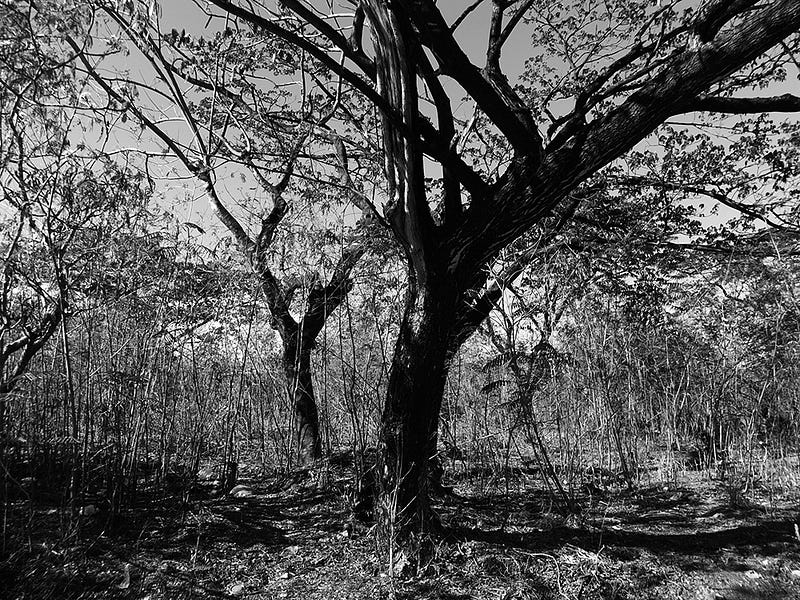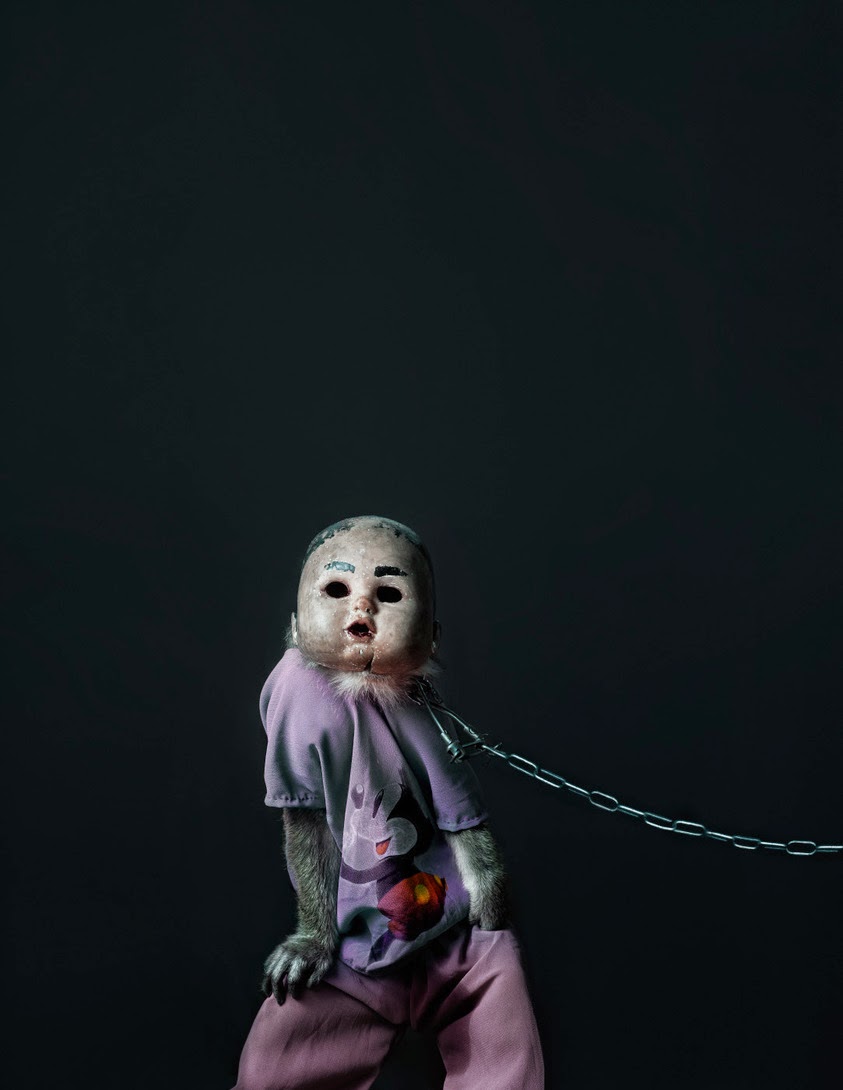A Parallel Planets piece by Unknown
in A Haunting Kind of Likeness
Story by Joy Celine Asto
Mentioned: anthropomorphism, street performers, and macabre macaques
* * *
Man has always had this odd fascination with making animals appear human-like. Some regard pets -- especially cats and dogs -- as substitutes for children, while anthropomorphism (the attribution of human form and traits to animals or inanimate objects; also called personification) remains a popular and effective story-telling device in art, literature, and film. It's all fun and games and everything cute, until you come across a documentary photo series by Finnish visual artist and photographer Perttu Saksa, which shows a rather eerie side to this obsession.
There has been a tradition among Indonesian street performers to dress up their pet monkeys in traditional masks and teach them tricks, a practice which eventually carried on to modern times and made its way into the cities. Aside from traditional masks, the monkeys are also made to wear children's clothes and cut-off heads of dolls. With chains around their necks, they are handed from one owner or handler to another, and dragged out in the streets where they perform tricks in exchange for a few coins. In the recent years, the Indonesian government has been catching up with this practice, and have created laws protecting the macaque monkeys and prohibiting street performers from exploiting them. However, in 2012, the Helsinki-based photographer found out it still existed in some parts of Jakarta.
"I did a lot of groundwork with the aid of a local journalist before we found a few people known as 'monkey masters' in the slums of Jakarta. They trained and rented out monkeys to beggars. I photographed the series over a few weeks in the autumn of 2012. Since the beginning of this year, the legislation has been made even stricter, and owning monkeys is now punishable by a prison sentence."
The result of this is a collection of portraits exhibited in 2013 called "A Kind of You," which alludes to how the street performing monkeys are like us in the natural sense (they're our closest "relatives" as well as other primates), and how they are forced to look and act like us for the sake of entertainment. I find Saksa's work to be thought-provoking not only because it's a documentation of an old tradition, but also because these poor animals mirror a number of human emotions and issues: fear, helplessness, oppression, and slavery. The children's clothes and creepy masks/doll heads are the final touches that elevate the practice into a spooky sight.
Perttu Saksa himself, who was appalled when he first witnessed the unsettling plight of the macaque monkeys, pointed this out in an interview with art critic Mika Hannula. "There is a reflection of humanity in the picture, even if it is done using subordination and with the aid of a macabre game."
More from Perttu Saksa: Website































